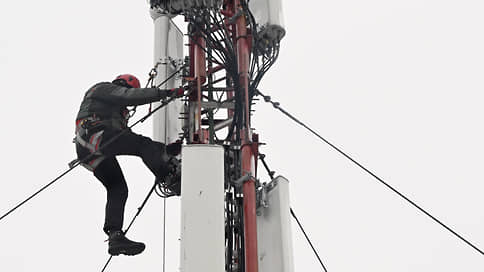Domestic equipment for communication networks will be launched in Crimea in 2024
[ad_1]

Rostec has developed and supplied 4G base stations for testing by Russian operators. Voentelecom plans to launch equipment on the network in Crimea in 2024. The stations that Rostec offered to operators in 2021 did not satisfy them. Since then, the situation with the supply of foreign equipment has deteriorated sharply. But market participants are still in no hurry to agree to the Russian one, noting that it does not meet a number of important parameters.
Spektr, which is part of the Rostec Group of Companies, has developed a line of base stations (BS) of the LTE (4G) standard and has begun deliveries to Russian operators, a source on the market told Kommersant. The lineup includes LTE base stations operating in the 800 MHz, 1800 MHz and 2600 frequency bands. According to the interlocutor, “the stations were supplied for testing to all major mobile operators, one of them has already made a large purchase.”
Another Kommersant source close to the government says that the Rostec BS received VTK Mobile (Voentelecom), which is testing equipment in the Crimea. According to him, Spektr was able to purchase components for about 60 BS, a dozen were put to the test.
The Ministry of Digital Development confirmed to Kommersant that VTK Mobile is testing Russian stations and plans to start their commercial operation in Crimea in 2024.
The press service of Rostec told Kommersant that Spektr had developed four base stations operating in the LTE standard: “They are successfully integrated and work surrounded by base stations from other manufacturers. Thus, the Spectra equipment is compatible and can interact with the existing equipment of cellular operators.”
Rostec did not specify who exactly received the equipment, noting only that it was tested “both in the southern regions and in the Far North.” The state corporation emphasized that they plan to “finish the equipment and adapt it to the requirements of operators.”
VimpelCom confirmed that they had carried out a number of tests of BS from Rostec, both in the early stages of development and in 2023: “We do not use them in commercial projects, since the equipment does not yet meet a number of important technical characteristics.” Rostelecom noted that they plan to start testing domestic LTE base stations by the end of the year. MegaFon did not enter into a contract with Spectrum for the supply of base stations, the company said. In “Voentelecom” and MTS did not answer “Kommersant”.
Spektr was established in August 2021 and expected to become “a national vendor of equipment for 4G, 5G and 6G communication networks” (see “Kommersant” dated August 20, 2021). In the same autumn, Spektr provided operators with LTE equipment for testing, but, according to market participants, it did not show the necessary functionality (see “Kommersant” dated November 19, 2021).
In accordance with the roadmap for the development of mobile communications in Russia, approved by the government in 2022, Rostec structures are only responsible for the development of 4G equipment, and Skoltech, New Telecom Solutions have been involved in projects to create a BS for other standards and ICS Holding (see “Kommersant” dated November 17, 2022). The structure of the latter – Yadro received a subsidy of 3.5 billion rubles. for the development of BS (see “Kommersant” dated August 8).
Rostec does not disclose investments in BS 4G, specifying only that the development “was carried out mainly at its own expense.”
A Kommersant source familiar with the situation notes that Rostec is trying to get a subsidy to compensate for the costs, since “they turned out to be three times higher than the market ones.”
The Mintsifra stated that they intend to subsidize equipment manufacturers if they attract comparable extra-budgetary funding.
Yadro promises to soon present BS layouts of its own design and production, as well as samples of various 2G/4G (5G Ready) configurations: lots will be consistently increased in accordance with the signed forward contracts”.
The interlocutor of Kommersant in the telecom market notes that now the 4G standard remains the most demanded equipment for operators: “These networks are the most heavily loaded, the shortage of equipment after the departure of foreign vendors remains, operators are actively converting 3G frequencies to 4G to optimize work.”
[ad_2]
Source link





